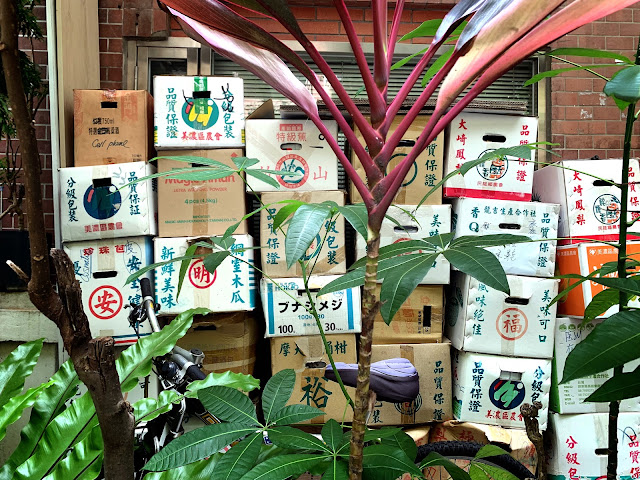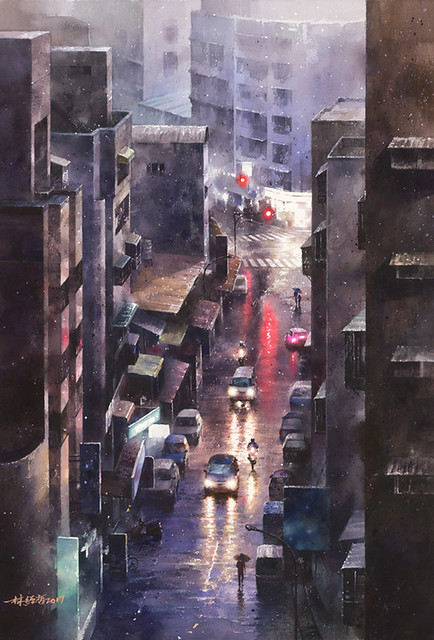Most importantly, I urge everyone to check out this feature in the Taipei Times. Despite same-sex marriage being legal since 2019, some same-sex international couples -- that is, a foreigner married to a Taiwanese person -- are struggling to obtain Taiwanese citizenship for their children. It's the subject of at least one lawsuit against the Ministry of the Interior, as you'll read in my interview with one of the plaintiffs.
Despite equality being enshrined in the constitution, and access to some (but not all) equal rights being extended to same-sex couples in Taiwan, true equality remains elusive. I sincerely hope this lawsuit will change that, and that the issue gets the attention it deserves.
Speaking of citizenship rights, I also wrote something for Ketagalan Media on an initiative by Crossroads Taiwan asking the government to provide a reasonable path to dual nationality for permanent residents in Taiwan. There's even a petition, and although the interface can be challenging, I ask that you not only sign, but share it widely. As someone who considers herself a 'lifer' in Taiwan, this issue affects me personally. Without citizenship, it's difficult to plan for retirement: where exactly are we going to live if we can't get a mortgage approved, when landlords don't like to rent to the elderly? It's saddening to have no representation or say in the government of the country I call home.
And the government's excuses for not providing a reasonable, accessible pathway ring hollow -- they speak of 'loyalty' but just about anyone whose ancestors were Republic of China citizens can become Taiwanese. So they assume that, say, a person of Chinese heritage born in the US, whose ancestors may have never set foot in Taiwan, will be loyal to Taiwan. But not someone who decided she loved this country so much that she'd decide to make it her permanent home? They speak of security, and yes, that's a concern, but again -- how likely is a permanent resident in Taiwan likely to be co-opted by the Chinese government, and do they even try to determine whether, say, an American descendant of an ROC national has been? Come on.
In fact, Ketagalan Media has been getting a lot of my attention now that it's been properly revived. As it turns out, I also have opinions about nuclear power in Taiwan! You'd think as a diehard Splittist Separatist Independence Dog that I'd fall in line with the DPP and be anti-nuclear, but I'm actually not. I have concerns about it, but I actually think it's possible to do nuclear safely in Taiwan. The real question is, why hasn't the pro-nuclear crowd (really just the KMT and their ancillary admirers) done more to reassure the public that they prioritize safety? Do they prioritize safety? Given their history of lies and some very scary allegations, I can't say for certain that they do.
I'm also one of the authors of the 2024 Louis Vuitton Taipei City Guide, which is pretty cool. I handled restaurants, style and nightlife, which is somewhat hilarious because I have no style and I usually don't partake in nightlife (but I did seek out lots of good recommendations, and I have ideas for the next edition if I'm invited back). While some of my recommendations have moved (Joseph Bistro is now Summer Flowers) and others are going out of business (I'm really going to miss A-Cai's), others are still going strong.
I've also been writing for local travel and tourism magazines. I drank so much coffee that I made myself slightly ill for a piece on Taiwan's upscale coffee revolution (and got to interview some interesting people, including a coffee roaster who opened her own cafe, an employee at SanFormosan (they don't do 'titles' there, it's very communal), the general manager of Simple Kaffa, and representatives from the Coffee Industrial Alliance of Taiwan.
In fact, I've interviewed a lot of fascinating people over the past few years. I learned more about the history of Bao'an Temple (保安宮) from its chairman, Liao Wu-jyh (廖武治), discussed history and aesthetics with an expert on the Eight Generals (八家將), and traditional Taiwanese puppetry and its history with Robin Ruizendaal, a puppet master from the Netherlands who has also made Taiwan his permanent home -- and probably speaks better Taiwanese than I do. (Mine's not that good yet). There have been other articles, but these are the most memorable.
I've also been writing for Taiwan Scene, including a piece on working as an expat woman in Taiwan. I wrote another on places to visit in Wanhua -- I can't find the link right now, but will post it when I do.
Anyway, I've been busy, and there's more to come, including completed interviews with the general secretary of the Taipei Zoo and a well-known Taiwanese designer, and two or three more rapid-fire pieces for Ketagalan Media.


